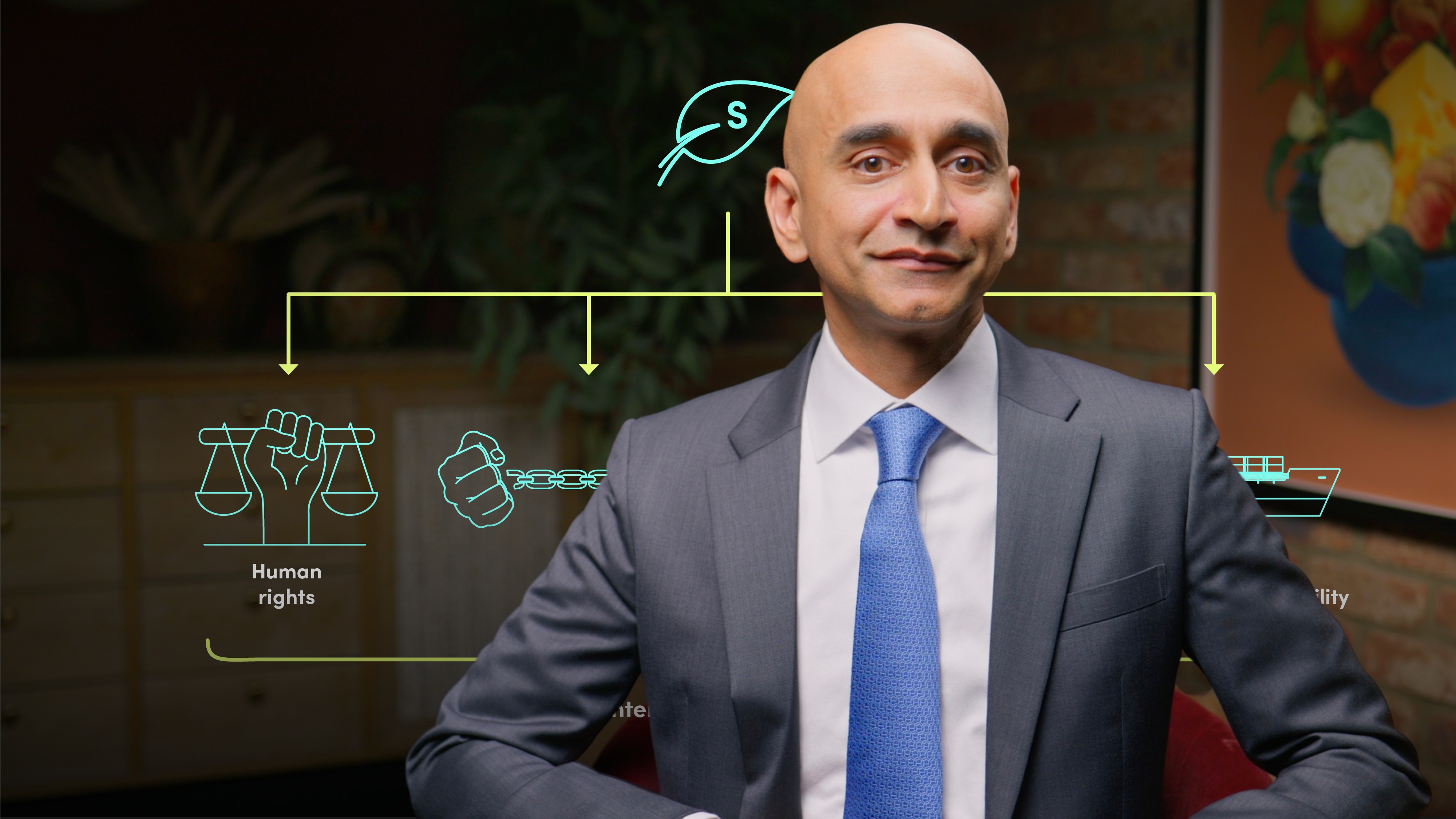
Key Social Factors in ESG Investing

Arun Kelshiker
20 years: Asset management and stewardship
In this video, Arun unravels the complex interplay between social factors and financial health. He explores nine influential social megatrends, including globalisation, automation, and changing demographics, shaping the dynamics of governments, economies, and societies. He further talks about the key internal and external social factors investors should consider, from human capital development to stakeholder relations and ethical business practices.
In this video, Arun unravels the complex interplay between social factors and financial health. He explores nine influential social megatrends, including globalisation, automation, and changing demographics, shaping the dynamics of governments, economies, and societies. He further talks about the key internal and external social factors investors should consider, from human capital development to stakeholder relations and ethical business practices.
Subscribe to watch
Access this and all of the content on our platform by signing up for a 7-day free trial.

Key Social Factors in ESG Investing
13 mins 12 secs
Key learning objectives:
Outline the social megatrends influencing governments, economies and societies
Understand the key social factors investors should consider
Overview:
Social factors, categorised into internal and external factors, can significantly influence a company's financial health. Internal factors cover human capital, working conditions, and human and labour rights, while external factors cover aspects such as stakeholder relations, sourcing, product liability, and social opportunities. Amidst this, nine social megatrends have emerged: globalisation, automation, digital disruption, evolving work dynamics, individual rights shifts, changing demographics, urbanisation, and religion's influence. Coupled with challenges like climate change and migration, these elements present a complex landscape for businesses and investors. Recognising their interplay is essential for strategic decision-making.
Subscribe to watch
Access this and all of the content on our platform by signing up for a 7-day free trial.
- Globalisation is turning local economies into international marketplaces.
- Automation and AI are increasing production rates but may make certain jobs obsolete.
- Income inequality is on the rise, influenced by worldwide dynamics.
- Digital disruption is challenging traditional business models.
- The Covid pandemic has significantly altered patterns of work, leisure, and education.
- Individual rights, responsibilities, and family structures are undergoing shifts.
- Demographics are evolving, with aging populations in developed countries.
- Urbanisation is progressing rapidly, with predictions of a predominantly urban global population by 2050.
- The religious landscape is changing, impacting consumer behaviours and local economies.
Subscribe to watch
Access this and all of the content on our platform by signing up for a 7-day free trial.

Arun Kelshiker
There are no available Videos from "Arun Kelshiker"





























